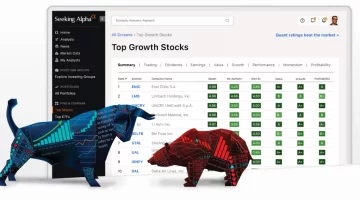An Overview Of ESG Investing
No matter their size, nearly every company has an environmental footprint. Businesses of all sorts also create a societal impact via their relationships with employees, customers, vendors, and the community. Another commonality: All companies have a governance structure that determines who is running operations, developing strategies, and more. Taken together, these are known as environmental, social, and governance factors — or just “ESG.”
ESG considerations have become increasingly important to companies due to today’s focus on environmental issues and human rights. In turn, companies’ ESG initiatives are critically important to a socially conscious segment of investors who base investing decisions around a company’s level of commitment to ESG issues.
Defining ESG Investing
Many investors value the efforts that companies make toward sustainability and the actions they take to protect the environment. These investors also value social and governance factors as they apply to relationships and a company’s missions. In fact, to some investors, these areas are just as important as financial factors when it comes to making investment decisions. ESG investing involves factoring in a company’s strategy and progress in these areas:
- Environmental:Investors want to know what companies are doing to conserve the planet’s resources and operate in a sustainable manner. What is the company doing to protect the environment as a whole?
- Social:Investors seek to understand the relationships that companies have with employees and others. Do they create fair opportunities? Are they humanistic with vendors, customers, and the people they serve in the community? What role does the company play in supporting the community?
- Governance:Also critical to ESG investors is knowing what steps a company takes in terms of oversight with its board and management team. What governance policies are in place to ensure fair and just management of the business, and equal opportunities regardless of individuals’ demographics?
Why Does This Matter?
Many investors decide where they should put their money based on their perceptions and opinions regarding what is right and just. For many investors, especially younger investors, ESG investing has become commonplace. There are funds that target companies based on their ESG initiatives. Some financial and analytics companies even create ESG ratings formulas based on several ESG-related metrics. This helps investors know where companies stand on ESG initiatives in comparison with other companies.
Since a company’s stock stands to gain from having the largest potential pool of investors, it can be critical for companies to develop, support and publicize ESG initiatives.
Why Is ESG Investing Growing So Rapidly?
- The world is a very different place than it used to be. Global sustainability has become a responsibility for all companies and people.
- Investors are changing, too. Millennials have more investing power than when they were young, and this age group values social responsibility.
- Data is more readily available than ever before. Investors have access to the information they want and need, such as the aforementioned ESG ratings.
Establishing Standards to Meet Investor Goals
Companies interested in attracting ESG investors can take several steps to establish, enhance or better communicate their relevant policies. Establishing teams, goals and responsibilities are key parts of the process — but it is also important for businesses to be able to inform the investing community about their ESG performance, backing up their communication with data and evidence.
Take a look at the accompanying infographic for a clear understanding of ESG investing. By being proactive, it’s possible not only to improve company standards but also to capture investor attention.
More to Read:
Previous Posts:






